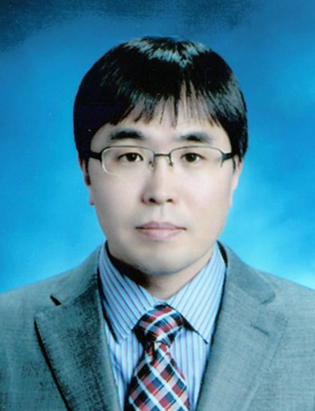Green Light for Commercialization of Flexible Display! N
No.88640- Writer YU
- Date : 2014.02.17 15:22
- Views : 9851
YU, Yonsei University and Inha University joint research team develops the technology for the formation of polymer brush nano thin films
Expected to be used for various electronic devices from process simplification, cost reduction and quality improvement
[Feb 3, 2014]
Expected to be used for various electronic devices from process simplification, cost reduction and quality improvement
[Feb 3, 2014]
A domestic university joint research team turned on the green light for commercialization of flexible monitors and folding smartphones.

YU Professor Kim, Se Hyun of the Department of Nano, Medical and Polymer Materials (left on photo), Yonsei University Professor Im, Seong Il of the Department of Physics, and Inha University Professor Yang, Hoi Chang of the Department of Nano-Systems Engineering joined up to develop the 'technology for the formation of the polymer brush nano thin film' that can greatly reduce the operating voltage of organic thin film transistors, which are next-generation electronic devices.
This technology, which simplifies the existing complicated process and equipment and cuts down the cost, is expected to contribute greatly to the industry's development by being used in various devices such as flexible displays including smartphones that can be folded and unfolded and tablet PCs that can be rolled up like paper, as well as Wearable Bio sensors, RFID (radio-frequency identification tags), and smart cards.
In order to commercialize organic thin film transistors, it is necessary to secure technologies for the implementation of low voltage operated electronic device that can operate with regular batteries (1.5V). However, low voltage implementation technologies developed until now have limitations in commercialization due to problems such as high process expenses and integrity between devices.
Accordingly, the research team utilized widely used organic semiconductor materials to confirm the self-assembly, crystallization, thin-film-formation mechanism on top of insulation layer surfaces and developed a polymer brush nano thin film formation technology that can radically cut down on process costs, while enhancing product integrity.
YU Professor Kim, Se Hyun (35) who participated in the joint research said, "By developing the organic-inorganic hybrid insulation layer where low power operation is possible and the technology for the formation of the polymer brush nano film that can optimize the interface between semiconductor and insulation layer with organic thin film transistor technologies that can achieve the operation within 1.5V in low capacitance insulation layers, we opened new possibilities that can radically reduce the operating voltage of next-generation soft electronic devices.
The organic electronic device that applied this new technologies by the research team is expected to take an important position in the next-generation flexible display market that is expected to grow to a global market worth 42 billion dollars by 2020 through high flexibility and various uses.
This study was carried out by the Ministry of Science, ICT and Future Planning's global frontier project [Center for Advanced Soft Electronics (director Cho, Kil Won)]. The research result was published as the cover thesis on the latest version (Vol. 26, Issue 2, January 15, 2014) of the world-renowned academic journal in the materials science sector, <Advanced Materials> (impact factor (IF) 14.829).